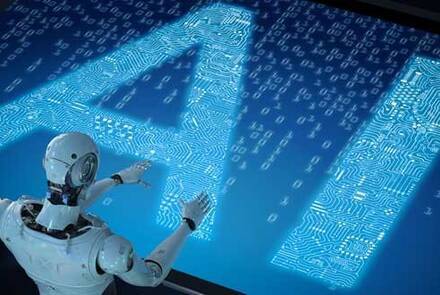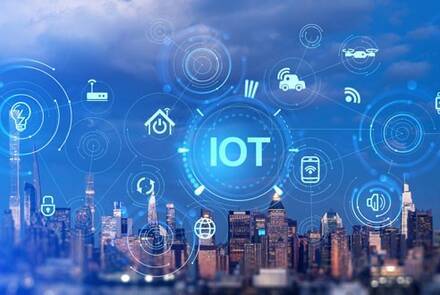2025 Digital Transformation Trends
April 01, 2025
As we progress through 2025, digital transformation continues to evolve, driven by rapid technological advancements and shifting business needs. Building upon the trends identified in 2024, several key developments have emerged, reshaping industries and redefining operational strategies.
- Artificial Intelligence (AI) Maturation
- Agentic AI Systems: The evolution of AI has led to the development of agentic AI—systems capable of autonomous decision-making and task execution without human intervention. Major firms, including those in the Big Four, are integrating these AI agents to enhance productivity and transform business operations.
- Explainable AI (XAI): There is an increased emphasis on making AI systems more transparent and understandable, addressing concerns about biases and decision-making processes.
- . Expansion of Edge Computing
- Decentralized Processing: The widespread adoption of edge computing facilitates faster data processing, reduced latency, and enhanced efficiency in real-time applications.
- Edge AI Integration: Integrating AI capabilities at the edge enables devices to process and analyze data locally, reducing dependence on centralized cloud systems.
- 5G Integration and Connectivity
- Ubiquitous Connectivity: The full-scale deployment of 5G networks fosters seamless connectivity and enables innovative applications such as augmented reality (AR) and virtual reality (VR).
- IoT Acceleration: 5G's high bandwidth and low latency drive the proliferation of Internet of Things (IoT) devices and applications across industries.
- Hybrid and Multi-Cloud Solutions
- Flexible Cloud Architectures: There is widespread adoption of hybrid and multi-cloud models for enhanced flexibility, scalability, and efficient resource utilization.
- Edge-Cloud Integration: Integrating edge computing with cloud services creates a cohesive and responsive computing infrastructure.
- Cybersecurity Evolution
- Zero Trust Security Models: There is continued emphasis on zero trust security frameworks, ensuring security measures are implemented at every level of the digital ecosystem.
- AI-driven Threat Detection: Integrating AI in cybersecurity enables proactive threat detection, rapid response, and adaptive security measures.
- Blockchain Applications Beyond Cryptocurrency
- Supply Chain Transparency: There is increased use of blockchain for supply chain management, ensuring transparency, traceability, and authenticity of products.
- Smart Contracts: There is wider adoption of smart contracts for automating and securing contractual agreements in various industries.
- Human Augmentation Technologies
- AR and VR Integration: There is greater integration of augmented reality (AR) and virtual reality (VR) in various sectors, enhancing training, design, and customer experiences.
- Biometric Enhancements: Advancements in biometric technologies, such as brain-computer interfaces and prosthetics, are leading to innovative applications in healthcare and beyond.
- Sustainable and Green Tech Initiatives
- Tech for Environmental Impact: There is an increasing focus on utilizing digital transformation to address environmental challenges and promote sustainability.
- Green Data Centers: The adoption of eco-friendly practices in data centers, utilizing renewable energy sources and energy-efficient technologies, is on the rise.
- Rise of the Data Economy
- Data Monetization Strategies: Organizations are increasingly recognizing data as a valuable asset, leading to the development of strategies for data monetization. This includes data barter systems where services are exchanged for customer data, enhancing personalized offerings.
- Enhanced Data Governance: With the growing importance of data, robust data governance frameworks are being established to ensure data quality, privacy, and compliance with regulations.
- Integration of AI in Organizational Strategy
- AI as a Strategic Partner: AI is transitioning from a tool for task automation to a central component of organizational strategy. Companies are leveraging AI to redefine business models, enhance decision-making processes, and create new value propositions.
- Workforce Transformation: The integration of AI necessitates upskilling employees to work alongside AI systems, fostering a collaborative environment where human intelligence and AI complement each other.
- Emergence of Spatial Computing
- Blending Digital and Physical Worlds: Spatial computing technologies, including augmented reality (AR) and virtual reality (VR), are creating immersive experiences that blend digital content with the physical environment, finding applications in gaming, education, and remote work.
- Enterprise Applications: Businesses are adopting spatial computing for virtual prototyping, training simulations, and enhancing customer engagement through interactive experiences.
- Focus on AI Governance and Ethics
- Establishing AI Governance Frameworks: As AI becomes more pervasive, organizations are developing governance frameworks to ensure ethical AI deployment, addressing issues such as bias, transparency, and accountability.
- Regulatory Compliance: Companies are proactively aligning AI initiatives with emerging regulations and standards to mitigate legal and reputational risks.
Conclusion
The digital transformation landscape in 2025 is characterized by the deepening integration of advanced technologies into business strategies and operations. Organizations that proactively embrace these trends are well-positioned to drive innovation, enhance efficiency, and maintain a competitive edge in the evolving digital economy.
References
- Business Insider. (2025, March). Deloitte and EY launch agentic AI platforms as Big Four battle for AI dominance. Retrieved from https://www.businessinsider.com/deloitte-ey-launch-agentic-ai-platforms-big-four-competition2025-3
- Wired. (2025). Artificial intelligence is transforming how organizations work—it's now central to strategy. Retrieved from https://www.wired.com/story/artificial-intelligence-work-organizational-strategy
- Gartner. (2025). Top Strategic Technology Trends for 2025. Retrieved from https://www.gartner.com/en/articles/top-technology-trends-2025
- Wikipedia. (n.d.). Data economy. Retrieved from https://en.wikipedia.org/wiki/Data_economy
For more information about Trigyn’s Digital Transformation Services, Contact Us.






